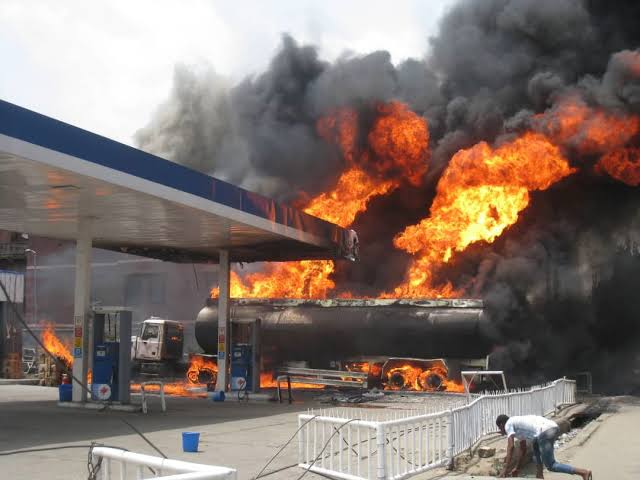The Federal Government, on Wednesday, raised the alarm over the rising cases of deadly incidents in filling stations, depots and by tanker drivers, which had claimed about 633 lives in less than four years.

It vowed to sanction culpable oil marketers operating in the downstream sector over their poor management of health, safety, and environment, particularly when transporting and offloading petroleum products.
A presentation by the Nigerian Midstream and Downstream Petroleum Regulatory Authority at a meeting with petroleum product transporters and retailers in Abuja, on Wednesday, indicated that a total of 633 fatalities were recorded in the downstream oil sector in 2018, 2021 and 2022 to date.
Although the presentation did not capture the figures for 2019 and 2020, it indicated that the fatalities were caused by 388 incidents.
The NMDPRA stated that the downstream sector witnessed 412 deaths from 244 incidents in 2018, while 173 deaths were caused by 103 incidents in 2021, as 48 fatalities were recorded from 41 incidents from 2022 till date.
Condemning the development, the North-Central Regional Coordinator, NMDPRA, Maijiddah Abdulkadir, said the authority would recommence the HSE technical audits, of which the outcome would be used in liaison with other directorates, in the issuance of various licences.
“The HSE technical audit will evaluate the adequacy of the HSE requirements, competency and training of staff engaged by the operators.
“This will no longer be business as usual, it is now safety first, the NMDPRA would ensure that the aspirations of the Federal Government by passing the PIA (Petroleum Industry Act) is achieved.
“The law has provided in clear terms that in the case of negligence by any operator, such operator would be sanctioned accordingly,” she stated.
Abdulkadir, however, stated that the aim of government was not to sanction operators, but to ensure that operations were run in a safe manner to protect people, assets and the environment, which was the reason for the engagement with oil marketers and transporters on Wednesday.
“HSE needs to be on the front burner to attract growth to the business, reduce insurance premiums and protect the public, which you are a member of. And for us to achieve the following, we must reawaken the safety consciousness in our operations,” she told the marketers and fuel transporters.
Abdulkadir explained that the purpose of the discussion on HSE was to call for a sound management of HSE in the transportation of petroleum product operations in the downstream sector.
“This, of course, is key for adequate profitability in the sector. The proper approach to achieve this lies on the fact that HSE should be managed from a business perspective and not for compliance purposes only.
“This is to say that HSE-related matters should be integrated into the management decision-making process. The NMDPRA will always want to engage operators on the need to fully comply with relevant HSE laws and regulations as stipulated in the PIA,” she stated.
The NMDPRA official said the authority was engaging operators to forestall the dangers/risks posed by unwholesome practices and noncompliance to statutory provisions with respect to HSE in the transportation of petroleum products including gas.
“The engagement is to also create awareness and a culture of safe operations to protect persons, assets, and the environment, thereby eliminating accidents, and the cost of replacing damaged parts and this is the sure way to profitability,” Abdulkadir stated.
shippingposition
Follow us on Facebook/ twitter















